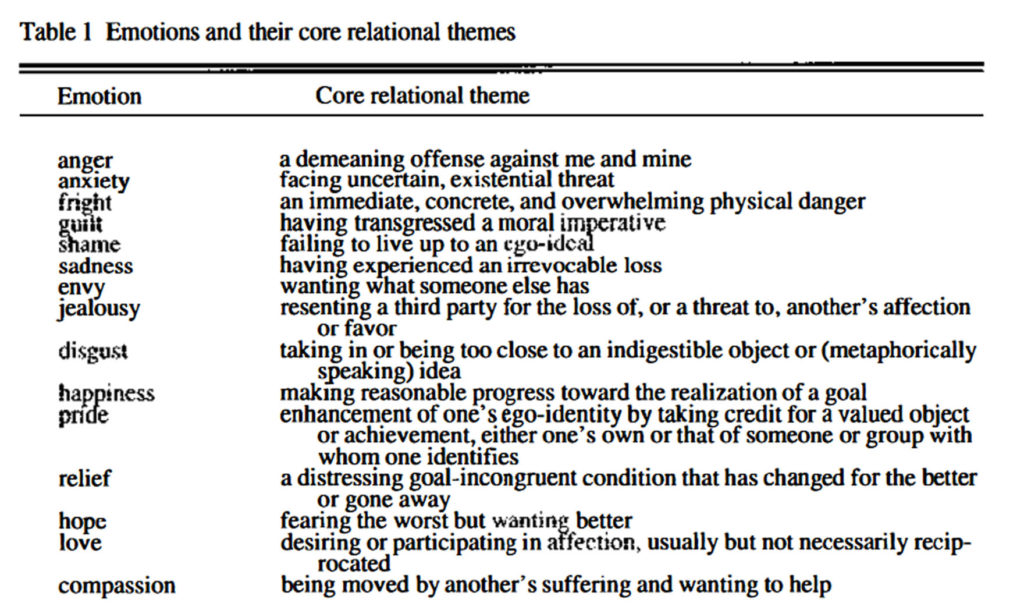Although considered by some to be ‘intangible’, and therefore not significant, stress and our emotions play a tremendous role in our overall well-being and, ultimately, in our physical health and longevity.
 Emotional health is demonstrated by people who can meet the typical stressors of life with an open mind, an optimistic outlook, and resilience. Instead of dreading unexpected events or challenges, they can let it engage their curiosity and lead them to find a new approach without feeling defeated. Some may look at these people and say that they are just lucky and that nothing bad seems to happen to them, although life experiences happen to all of us, and no one is immune to illness, hardships like job loss, or tragedies like losing a loved one. However by remaining positive, such people may answer that their life is indeed blessed, regardless of what has befallen them. According the Heart Math Institute, “Intentionally invoking positive emotions is one of the fastest and most effective ways to reduce unhealthy stress.” Choosing positive emotions completely alters our perspective, makes challenges seem less overwhelming, and creates the opportunity for a successful outcome when others may see only failure.
Emotional health is demonstrated by people who can meet the typical stressors of life with an open mind, an optimistic outlook, and resilience. Instead of dreading unexpected events or challenges, they can let it engage their curiosity and lead them to find a new approach without feeling defeated. Some may look at these people and say that they are just lucky and that nothing bad seems to happen to them, although life experiences happen to all of us, and no one is immune to illness, hardships like job loss, or tragedies like losing a loved one. However by remaining positive, such people may answer that their life is indeed blessed, regardless of what has befallen them. According the Heart Math Institute, “Intentionally invoking positive emotions is one of the fastest and most effective ways to reduce unhealthy stress.” Choosing positive emotions completely alters our perspective, makes challenges seem less overwhelming, and creates the opportunity for a successful outcome when others may see only failure.
When we consider that stress response may be genetic because people tend to respond in similar ways to that of their family, I propose that this is in greater part due to nurture rather than nature. Growing up with examples of positive attitude and fortitude, people learn the successful way of meeting challenges and find that victory can be even sweeter when it is hard won. On the other hand, seeing role models meet challenges with fear, overwhelm, or discouragement can establish the belief that obstacles are insurmountable, and the response to such a stressor can be immobilizing. This builds into a cycle of feeling defeated, disempowered, and lead to despair. Such a negative attitude can lead to health concerns, as poor sleep or depression may lead to inactivity, worsening health or weight issues. Hypertension and cardiac issues may develop, and the cycle spins out of control. Instead of seeking ways to overcome these challenges, the despairing can only protest “why me?”
Recognizing what emotions are generated by different stressors empowers people to regain control of their reaction. When we are able to identify what emotion we are feeling, we also have the opportunity to ask ourselves what else has made us feel the same way. Is our reaction a result of prior experience? Was it previously a successful reaction, or was there something that can now be done differently, in order to experience better results? Taking a moment to pause is something we have to train ourselves to do, but the act of identifying the emotion that results from an experience is a great way to begin.
I have found a very helpful table created by a lifetime scholar of psychology, R.S. Lazarus. Drawing connections from emotions to their core relational themes, we can not only enhance our ability to recognize our emotional response, but understand what generates a particular emotion. Perhaps the examples listed will not ring true for your specific situation, but they may help to define how your response differs from his general findings.

Emotions & Core Relational themes, by RS Lazarus
In the 1960s, when the study of psychology began to shun theories of philosophy for scientific insights into the mechanical working of the human mind, Lazarus was driven to examine stress and how it is affected by emotions. Even throughout his career at University of California at Berkley into the 1990s, he felt he was working against the trend to discount the effects of emotion in a person’s physical wellbeing. He proposed that “emotion-focused coping” helped de-personalize stressful events so that people were not as deeply affected by them. The appraisal of a situation helps determine the level of stress it would create, for example a demeaning comment from a spouse does not lead to such a strong negative reaction if one can frame it as arising from personal illness or job stress. In other words, hurtful words don’t necessitate a wounded ego or an argument if the recipient can maintain the perspective that the comment isn’t exactly what it seems.
The good news is that we have the power to control our response to stress! We aren’t destined to see our health suffer as life turns up the heat. We can be forged into a stronger person, instead of feeling bent out of shape. As we gain a deeper understanding of our emotions, we see not only how but why we respond in our unique ways. And we have the opportunity to take something that doesn’t benefit us and make it into an experience of insight and deeper knowledge of our true self.
Sources:
- Lazarus, R. S. (1993) FROM PSYCHOLOGICAL STRESS TO THE EMOTIONS: A History of Changing Outlooks, http://www.annualreviews.org/doi/pdf/10.1146/annurev.ps.44.020193.000245
- http://familydoctor.org/familydoctor/en/prevention-wellness/emotional-wellbeing/mental-health/mind-body-connection-how-your-emotions-affect-your-health.html (website of the American Academy of Family Physicians)
- https://www.heartmath.org/articles-of-the-heart/science-of-the-heart/stress-and-cognitive-decline/#
